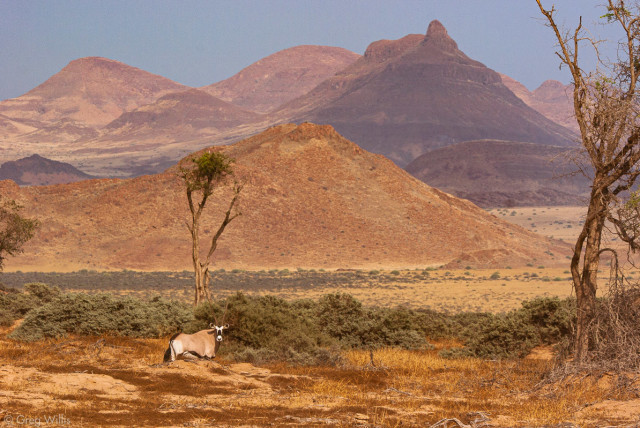Jews are in a moment of broken illusions, but we’re stronger than we think - opinion

Our Torah portions offer comfort, reminding us that the past was never perfect and that the gap between the real and ideal has been part of our DNA from time immemorial.
This article initially appeared in My Jewish Learning’s Shabbat newsletter Recharge.
This past Shavuot, I was teaching the scroll of Ruth when I had a sobering epiphany. I was explaining that the story’s historical context was the time of the judges, a period characterized in the biblical account by a vicious cycle of tribal leaders defeating external enemies only to see their tribes degenerate into brutal violence and anarchy. It dawned on me that there is no period in our past devoid of brokenness. With some exceptions, the Jewish people have always been beset by external conflict and inner turmoil.
I was reminded of this again when reading this week’s Torah portion, Beha’alotcha. The portion describes the Israelites in the wilderness as they prepare to depart from the Sinai desert for the promised land. Everything is carefully choreographed. The tribes with their banners are arranged in order with the tabernacle at their center. Moses creates silver trumpets to help announce to the people when they were to travel. The people even have a divine GPS — a cloud during the day and a pillar of fire at night — to guide them.
Everything is perfect, culminating in a verse that reflects the elation of a people ready to embark on a sacred mission: “When the ark was to set out, Moses would say: Advance, O God. May Your enemies be scattered, and may Your foes flee before You.” (Numbers 10:35)
And then, to quote W.B. Yeats, “things fall apart.”
Back to Egypt
Deep in the wilderness, the people start murmuring. The Israelites are tired of their daily manna and they complain to Moses. They want meat, recalling the delicacies they ate in Egypt: “The riffraff in their midst felt a gluttonous craving; and then the Israelites wept and said, ‘Who will feed us meat to eat? We remember the fish that we used to eat free in Egypt, the cucumbers, the melons, the leeks, the onions, and the garlic.’” (Numbers 11:4-5)
These remarks are truly astounding. Egypt was a place of slavery and genocide. Did they not remember the bitterness and the horror? How can the people so quickly forget the tyranny and oppression they suffered?
The challenge is not simply the length of the journey to the promised land, but the allure of the past, which offers us a frank and stark revelation of the pitfalls of the human psyche: No matter how horrific Egypt was and how much we want the promised land, we will get distracted on the journey by things as trivial as melons and onions.
What’s worse is that this becomes a pattern. The rest of the Book of Numbers can be described as a series of murmurings and catastrophes — from the sin of the spies that kept the Israelites in the wilderness for a total of 40 years, depriving an entire generation of freed slaves from seeing the promised land, to the rebellion of Korach that challenged the leadership of Moses and Aaron.
Many of the calamities have to do with internal dissatisfaction, with the travails of journeying in a wasteland with seemingly no purpose for so long. But others are precipitated by external enemies. The Amalekites attacked the Israelites, signaling to others that the Jewish people were not invincible. The Midianites and Moabites launch their own assaults.
The tension between the idyllic departure and the actual journey mirrors our current experience. We live with nostalgia for eras in which everything was supposedly fine, ignoring the lived experiences of our ancestors. Many of us live with the pain that even today our reality is far from what we want. Almost daily since Oct. 7 I feel visceral pain from my broken illusions, illusions that the world had rid itself of much of its antisemitic hatred, illusions that the evils perpetrated against defenseless Jews were somehow a thing of the past. Today we live with the pain of being in the wilderness — knowing there is a promised land, but stuck wandering in the dense thickets of uncertainty.
As I was writing this, a friend sent me a video from another funeral of another young Israeli soldier. And as has become ubiquitous in these funerals, I watched as thousands of mourners sang Ani Ma’amin — “I believe in the messiah” — their tears expressing not just the despair we feel at the brokenness of it all, but a desperate belief that things will get better.
It is here perhaps that our Torah portion offers comfort, reminding us that the past was never perfect, that that gap between the real and ideal has been part and parcel of our human and Jewish DNA from time immemorial.
It also encourages us to draw strength from those who have already traversed the wilderness. Their story reminds us that even when the journey is difficult, the promised land can still be reached. They remind us that we are stronger than we think and that every generation can make things better.
And they remind us, as Michael Walzer so pointedly noted, “that the way to the land is through the wilderness. There is no way to get from here to there except by joining together and marching.”
The views and opinions expressed in this article are those of the author and do not necessarily reflect the views of JTA or its parent company, 70 Faces Media.
Jerusalem Post Store
`; document.getElementById("linkPremium").innerHTML = cont; var divWithLink = document.getElementById("premium-link"); if (divWithLink !== null && divWithLink !== 'undefined') { divWithLink.style.border = "solid 1px #cb0f3e"; divWithLink.style.textAlign = "center"; divWithLink.style.marginBottom = "15px"; divWithLink.style.marginTop = "15px"; divWithLink.style.width = "100%"; divWithLink.style.backgroundColor = "#122952"; divWithLink.style.color = "#ffffff"; divWithLink.style.lineHeight = "1.5"; } } (function (v, i) { });

